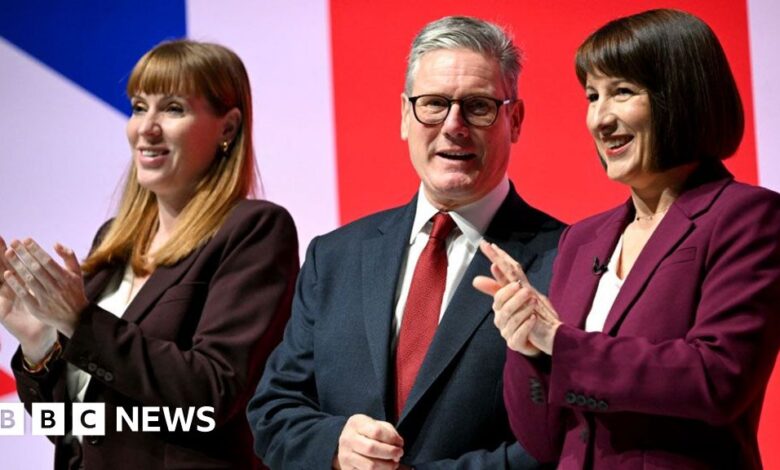Keir Starmer tightens rules on gifts to ministers

 AFP
AFPPrime Minister Sir Keir Starmer has tightened the rules on ministers accepting gifts and hospitality, after a row over senior Labour figures receiving freebies.
Ministers will not be banned from accepting gifts but the ministerial code has been updated to require them to consider the “need to maintain the public’s confidence in the standards of propriety” when deciding whether to do so.
A register of gifts received by ministers will now also be published monthly, rather than quarterly.
Since winning power in July, Sir Keir and other cabinet ministers have faced criticism for accepting gifts from wealthy donors.
The updated ministerial code states that it is a “well-established and recognised rule that ministers should not accept any gifts, hospitality or service which would, or might reasonably appear to, compromise their judgement or place them under an obligation to people or organisations that might try inappropriately to influence their work in government”.
The same principle applies to members of a minister’s family.
However, it points out that ministers have a responsibility to represent the government and their duties will sometimes require them to attend events where hospitality may be offered.
The code adds that it is “primarily a matter of judgement for ministers who are personally responsible for deciding how to act” in relation to accepting gifts.
The monthly register will include details and the value of gifts worth more than £140, as well as hospitality, received and given by ministers in their ministerial capacity.
It comes as the latest list of ministers’ interests revealed the prime minister is renting out his family home in north London after moving into Downing Street.
Sir Keir is not the first prime minister to do so – David Cameron also rented out his family home and Theresa May rented out a flat she owned in central London.
The list includes any relevant private interests which could be perceived to give rise to a conflict with a minister’s public duties.
It will now be published more regularly – quarterly rather than twice a year.
Meanwhile, the prime minister’s independent adviser on ministerial standards, Sir Laurie Magnus, will now have the power to launch investigations into alleged breaches of the code without seeking the consent of the prime minister.
Previously the PM was able to veto investigations by the adviser.
The change was promised in Labour’s election manifesto.
The ministerial code sets out the standards that ministers are expected to uphold.
While Sir Laurie advises the prime minister on adherence to the code, Sir Keir has the final decision on whether there has been a breach and what sanctions, if any, are required.
In a foreword to the code, Sir Keir said: “For a long time, [the British people] have looked at the conduct of politicians in Westminster and not seen the high standards of public service they expect or deserve.”
He added that the updated code “sets out the higher standards that the British people expect and that ministers must now follow”.




